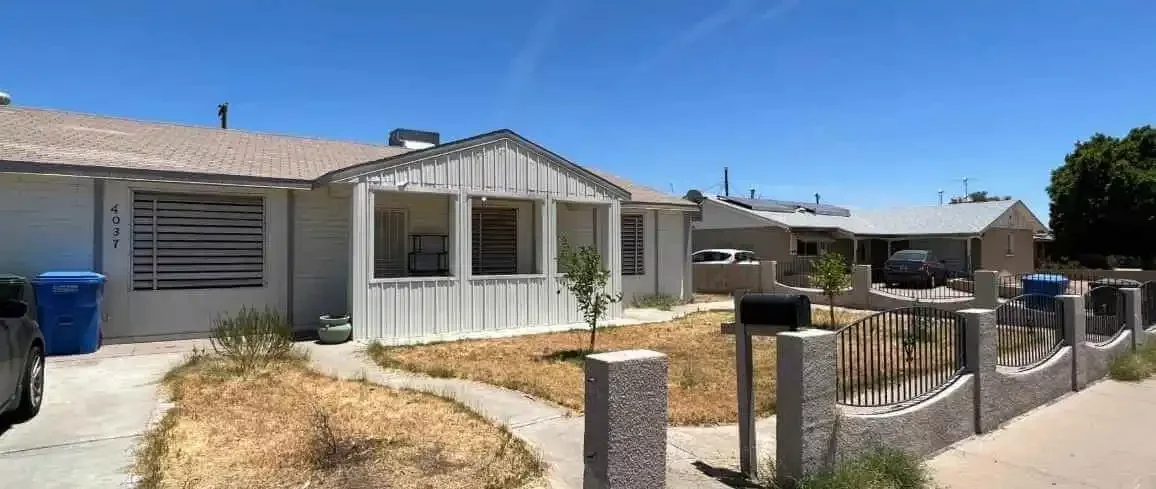
Discover What Do Contingent Mean When Buying a House in Phoenix?
What do contingent mean when buying a house in Phoenix? It’s a question many homeowners face when trying to upgrade while still owning their current property. Buying a house in Phoenix can be both exciting and stressful especially when you’re juggling the sale of your existing home. Getting the timing right selling your old house, closing on a new one, and moving in can feel like a logistical puzzle.
That’s why many buyers include a sales contingency in their offer. This clause ensures you’re not obligated to close on your new home until your current one sells. However, it can also make your offer less competitive in a hot market.
When you’re both a buyer and a seller, your goal is to sell your home quickly and secure your next one without missing a beat. If your dream home appears before your current home sells, there are still ways to make your contingent offer work. Understanding what do contingent mean in this context can help you navigate the process with confidence.
What Do Contingent Mean in Real Estate?
In real estate, a “contingent” offer means that the buyer’s ability to complete the purchase depends on certain conditions being met most commonly, the sale of their current home. It’s a way to protect buyers from being financially overextended or stuck with two mortgages at once.
For example, if you’re trying to buy a new home in Phoenix but still need to sell your existing property, you might submit a contingent offer. This tells the seller, “I want to buy your home, but I can only do so if my current home sells first.” If your home doesn’t sell within the agreed timeframe, the deal can be canceled without penalty.
Contingencies can also cover other conditions, such as:
- Financing: The buyer must secure a mortgage.
- Home inspection: The property must pass inspection.
- Appraisal: The home must appraise at or above the purchase price.
While contingencies offer protection, they can also make your offer less competitive especially in a hot market like Phoenix. That’s why it’s important to understand what do contingent mean and how to structure your offer strategically.
How to Buy a House in Phoenix Contingent on Selling Yours
What do contingent mean when you’re trying to buy a house in Phoenix while still owning your current one? It’s a common question for homeowners navigating the tricky timing of selling and buying at once. In this guide, we’ll break down what a contingent offer really involves—and how understanding what do contingent mean can help you move forward with confidence in a competitive market like Phoenix.
1. Do Your Research
Before you work with a real estate investor or any other private buyer, doing your research is important—especially if your sale is part of a contingent offer. Assuming you decide to sell for cash, you ought to do some investigation on the company you choose to work with. Do a web search on each company or organization, focus on the recommendations and client reviews, and check the Better Business Bureau file for any complaints. A solid, trustworthy buyer is essential when your next purchase may depend on a successful contingent sale.
2. Understand Your Agreement
Understanding the details of your contingency agreement is significant especially when you’re trying to grasp what contingent mean in a real estate transaction. You should be aware of how long you have until the home you’ve bought is scheduled to close, so you have adequate time to sell your current property. Talk with your real estate professional about anything in your deal that might cause a snag, and make sure you fully understand what contingent mean for your timeline and responsibilities.
3. Buy and Sell Aggressively
If you have any desire to make your prospective offer more appealing, you need to show that you’re working diligently to sell your home—especially if your offer is contingent. Talk with your sellers about your plans and let them know that you’re actively trying to get your home sold quickly.
When you find a home you want to buy, there’s no time to hesitate. Your contingency agreement may limit how much time you have to negotiate. That’s why it’s important to understand what contingent mean in this context: it can affect your leverage, your timeline, and your ability to compete in a fast-moving market. Know what you need, and trust your representative to show you homes that could lead to a swift and successful deal.
4. Open Communication
At the point when you are in the place of purchasing a home on contingently selling your own home, you need to be upfront and honest with all involved parties. Almost certainly, one of them may likewise be experiencing the same thing. To help the sale go through, you need to be open to compromise and concessions. You could talk to your seller about extending the end dates to suit you or to your buyers about moving up the date or including closing costs for the deal.
5. Be Prepared for Multiple Offers
In a competitive market like Phoenix, it’s not uncommon for sellers to receive multiple offers on their homes. If you’re buying with a sales contingency, you may need to be prepared to compete with other buyers who don’t have contingencies. This means you may need to make your offer more attractive in other ways, such as offering a higher price or being flexible with your closing date.
6. Get Pre-Approved for a Mortgage
Getting pre-approved for a mortgage can help strengthen your offer and show sellers that you’re a serious buyer. It can also help you understand how much you can afford to spend on your new home, which can be especially important if you’re buying with a sales contingency.
7. Work with an Experienced Real Estate Agent
An experienced real estate agent can be an invaluable resource when buying a home with a sales contingency. They can help you navigate the complexities of the process, negotiate with sellers on your behalf, and provide valuable insights into the local market. Look for an agent who has experience with sales contingencies and a track record of success in the Phoenix area.
8. Consider a Bridge Loan
If you’re having trouble selling your current home but don’t want to miss out on your dream home, you may want to consider a bridge loan. A bridge loan is a short-term loan that can help you cover the gap between buying your new home and selling your old one. This can give you the flexibility to move forward with your purchase without having to wait for your current home to sell.
9. Be Patient
Buying a home with a sales contingency can be a complex and sometimes frustrating process. It’s important to be patient and stay focused on your goals. Remember that finding the right home takes time, and it’s worth waiting for the perfect opportunity. Stay in close communication with your real estate agent and be prepared to act quickly when the right home comes along.
10. Stay Positive
Finally, it’s important to stay positive throughout the process. Buying a home is a major milestone, and it’s natural to feel stressed or overwhelmed at times. Keep your eye on the prize and remember that with the right approach, you can successfully navigate the process and find your dream home in Phoenix.
Purchasing another home on a possibility is tied in with the timing. Consider the tips above so you can explore this interaction and move into your dream home quickly.

